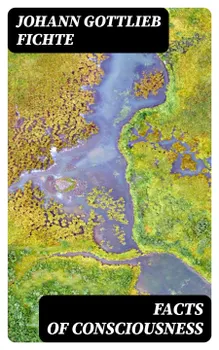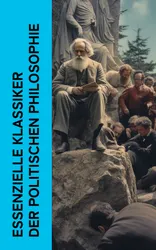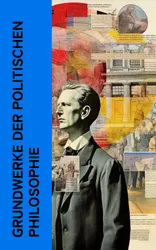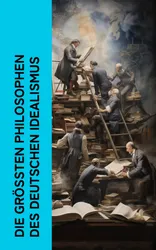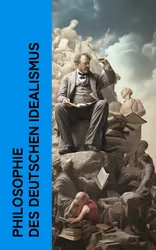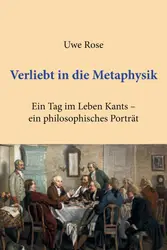In "Facts of Consciousness," Johann Gottlieb Fichte presents a pivotal exploration of self-awareness and the nature of consciousness that significantly influenced the development of German idealism. Written in the early 19th century, the book employs a rigorous, philosophical style characterized by dialectical reasoning and introspective inquiry. Fichte probes deeply into the processes of thought, subjectivity, and the role of the self in constructing knowledge, often challenging prevailing empiricist notions and emphasizing the significance of the individual's active engagement with their own consciousness. Fichte, a prominent philosopher of the Enlightenment, was greatly influenced by the ideas of Immanuel Kant, particularly the critical examination of the faculties of human understanding. His commitment to the principles of freedom and autonomy stems from his own experiences and the socio-political upheavals of his time, motivating him to seek a philosophical grounding for personal agency within a collective context. This backdrop informed Fichte's conviction that human consciousness is not a passive receiver of sensations but an active participant in the formation of knowledge and reality. "Facts of Consciousness" is a must-read for anyone intrigued by philosophical discourses surrounding self and consciousness. It offers profound insights into the nature of individual perception and serves as a crucial text for understanding the evolution of modern philosophical thought. Whether you are a philosopher, student, or avid reader of intellectual history, Fichte's work will enrich your comprehension of the self and its relation to the world.
Facts of Consciousness
Starten Sie noch heute mit diesem Buch für € 0
- Hol dir während der Testphase vollen Zugriff auf alle Bücher in der App
- Keine Verpflichtungen, jederzeit kündbar
Autor*in:
Sprache:
Englisch
Format:
50 Meisterwerke der Philosophie : Metaphysik, Das Gastmahl, Bhagavadgita, Tractatus logico-philosophicus, Kritik der reinen Vernunft, Also sprach Zarathustra, Selbstbetrachtungen von Marcus Aurelius
Ludwig Wittgenstein, Edmund Husserl, Karl Marx, Søren Kierkegaard, Friedrich Nietzsche, Ralph Waldo Emerson, John Stuart Mill, Georg Wilhelm Friedrich Hegel, Friedrich Schelling, Johann Gottlieb Fichte, Immanuel Kant, John Locke, Montesquieu, Jean-Jacques Rousseau, David Hume, Gottfried Wilhelm Leibniz, Baruch Spinoza, - Konfuzius, Lao Tse, Platon, Xenophon, - Aristoteles, Marcus Tullius Cicero, Seneca, Epiktet, Marc Aurel, Plotin, Thomas von Aquin, Nicolaus von Cues, - Erasmus von Rotterdam, Niccolò Machiavelli, Tommaso Campanella, Martin Luther, Giordano Bruno, Samuel von Pufendorf, Abbé Castel de Saint-Pierre, Michel de Montaigne, René Descartes, Francis Bacon, Blaise Pascal
bookEssenzielle Klassiker der politischen Philosophie : Der Staat, Der Gesellschaftsvertrag, Der Fürst, Utopia, Manifest der Kommunistischen Partei, Geschichte der Socialdemokratie
Niccolò Machiavelli, Montesquieu, Friedrich der Große, Platon, - Aristoteles, Marcus Tullius Cicero, Tommaso Campanella, Thomas Morus, Samuel von Pufendorf, Abbé Castel de Saint-Pierre, Jean-Jacques Rousseau, Immanuel Kant, Johann Gottlieb Fichte, Karl Marx, Friedrich Engels, Wilhelm von Humboldt, Friedrich Christoph Dahlmann, Franz Mehring, Johann Most, John Henry Mackay, Rosa Luxemburg, Erich Mühsam
bookGrundwerke der politischen Philosophie : Der Staat, Der Gesellschaftsvertrag, Der Fürst, Utopia, Manifest der Kommunistischen Partei, Geschichte der Socialdemokratie, Parlamentarischer Kretenismus
Platon, - Aristoteles, Marcus Tullius Cicero, Niccolò Machiavelli, Tommaso Campanella, Thomas Morus, Samuel von Pufendorf, Abbé Castel de Saint-Pierre, Jean-Jacques Rousseau, Montesquieu, Immanuel Kant, Friedrich der Große, Johann Gottlieb Fichte, Karl Marx, Friedrich Engels, Wilhelm von Humboldt, Friedrich Christoph Dahlmann, Franz Mehring, Johann Most, John Henry Mackay, Rosa Luxemburg, Erich Mühsam
bookDie größten Philosophen des Deutschen Idealismus : Die wichtigsten Werke von Kant, Hegel, Schelling, Jacobi, Fichte und Schleiermacher
Immanuel Kant, Johann Gottlieb Fichte, Georg Wilhelm Hegel, Friedrich Schelling, Friedrich Schleiermacher
bookPhilosophie des Deutschen Idealismus : Die Quelle der ewigen Wahrheiten, Kritik der reinen Vernunft, Wissenschaft der Logik, Grundlage der gesamten Wissenschaftslehre
Georg Wilhelm Hegel, Johann Gottlieb Fichte, Immanuel Kant, Friedrich Schelling, Friedrich Schleiermacher
bookGrundlage der gesamten Wissenschaftslehre (Alle 3 Bände) : Der Grund der Selbsterkenntnis und Gotteserkenntnis (Eines der zentralen Werke im nachkantischen Idealismus)
Johann Gottlieb Fichte
bookThe Vocation of the Scholar
Johann Gottlieb Fichte
bookFacts of Consciousness
Johann Gottlieb Fichte
bookThe Vocation of Man
Johann Gottlieb Fichte
bookGrundlage der gesamten Wissenschaftslehre (Alle 3 Bände) : Der Grund der Selbsterkenntnis und Gotteserkenntnis (Eines der zentralen Werke im nachkantischen Idealismus)
Johann Gottlieb Fichte
bookThe Vocation of the Scholar
Johann Gottlieb Fichte
bookDer geschlossene Handelsstaat
Johann Gottlieb Fichte
book
